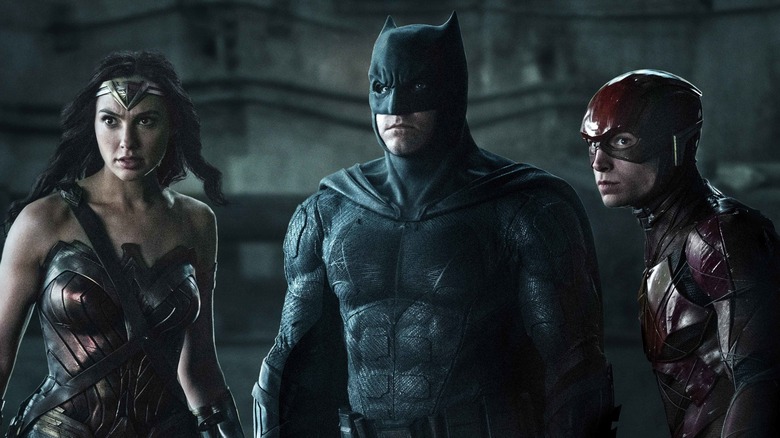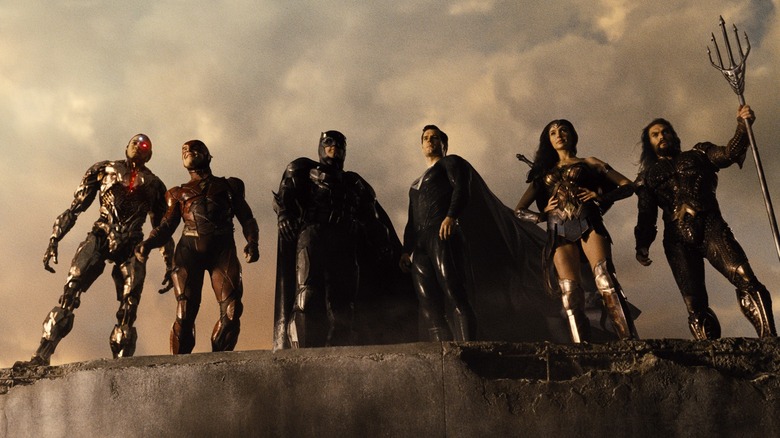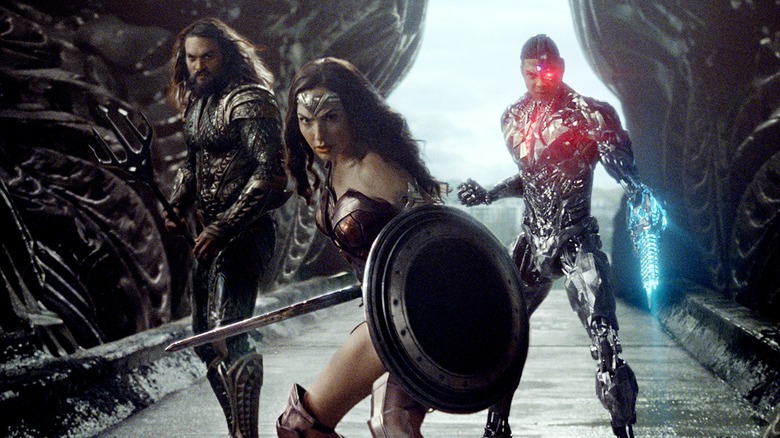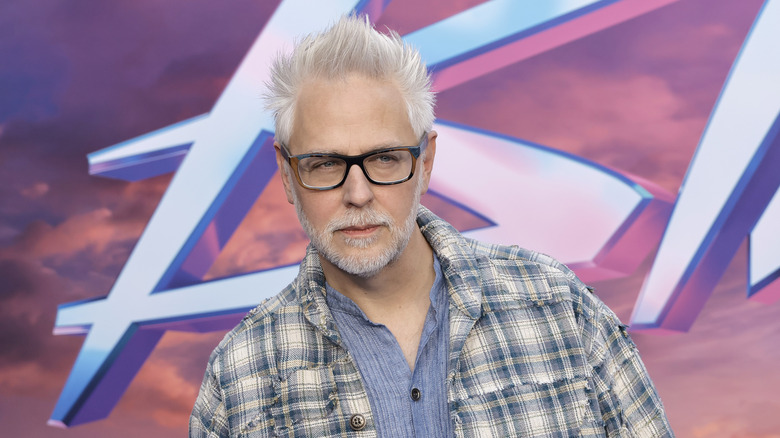Warner Bros. Spent $370 Million On Justice League - But It Cost DC Much More
It's been almost seven years since "Justice League" first hit theaters and three years since "Zack Snyder's Justice League" premiered on Max, then still known as HBO Max. Between the two releases, the film cost Warner Bros. an estimated $370 million to make — $300 million for the first version, which underwent extensive rewrites and reshoots after Joss Whedon replaced Snyder as director, and an additional $70 million for the Snyder Cut. And that's just production costs. After factoring in marketing and promotion expenses, the price tag for one of the most infamous superhero movies ever becomes even bigger.
Now that we've had a few years to recover from the unceasing online clamor for the Snyder Cut, and DC is preparing to once again reboot its cinematic universe under James Gunn next year, one thing has become crystal clear: "Justice League" was a disaster — but a fascinating one. In 2017, Forbes estimated that the theatrical release lost between $50 million and $100 million for Warner Bros. And while "Zack Snyder's Justice League" is a much better (and infinitely longer) film, it didn't exactly recoup those losses. It wasn't nearly as watched during its debut window on Max as other major 2021 releases like "Mortal Kombat," "The Matrix Resurrections," and "Godzilla vs. Kong." At this point, Warner Bros. may regret releasing the Snyder Cut entirely.
Financially, the entire "Justice League" enterprise was an unequivocal loss for Warner Bros. However, its messy saga has had larger implications for DC as a whole.
The odds were stacked against Justice League from the start
The superhero movie industrial complex looked a lot different when "Justice League" premiered back in 2017. The Marvel Cinematic Universe was knee-deep in Phase Three and had just completed a remarkable trilogy that year with "Guardians of the Galaxy Vol. 2," "Spider-Man: Homecoming," and "Thor: Ragnarok." "Black Panther" and "Avengers: Infinity War" were soon to follow. No one knew it then, but Marvel Studios was approaching a pop culture peak that no comic book movie franchise has neared since.
Even at the time, it was clear that DC was rushing to play catch-up. "Justice League" had close to the same amount of build-up as the first "Avengers," coming after five years and four preceding films, but it was woefully cramped by comparison. Audiences hadn't met Jason Momoa's Aquaman, Ezra Miller's Flash, or Ray Fisher's Cyborg yet. By contrast, the only new character in "The Avengers" was Mark Ruffalo's Hulk, and he wasn't even fully new, but rather a recast of Edward Norton. "The Avengers" was also riding a crescendo of mounting success, whereas "Justice League" was coming hot off two critical duds in "Suicide Squad" and "Batman v Superman: Dawn of Justice." Even before Joss Whedon took over from Snyder and changed the whole tone of the film, "Justice League" had the odds stacked against it.
DC still hasn't recovered from the Justice League debacle
Before "The Avengers" came out in 2012, I was convinced it was going to flop. I enjoyed "Iron Man" and "Captain America," but I was certain that you couldn't put that many core characters in a single superhero movie and balance them all out without it getting messy. I wound up being horrendously wrong, but even so, I wasn't alone. Journalists, moviegoers, and even executives at Marvel Studios all cast aspersions on the big-screen team-up before its release. No sure thing, "The Avengers" had to earn its success, which led to the complete domination of Hollywood.
The blunder of "Justice League" effectively ended any chances of the DCEU reaching a similar level. Diehard fans of Zack Snyder and his grimdark version of the DC universe mostly hopped off the train when the director was pushed out. "Wonder Woman" generated the most goodwill amongst more casual moviegoers, but it faded as later installments in the franchise stalled. Even though "Aquaman" became a stealth hit at the box office, it became increasingly clear that DC had lost faith in its own shared universe concept, with films like "Joker" splitting off completely.
In retrospect, it may have made more sense to let Snyder continue with his particular DC vision. It at least stood out from the competition and had a dedicated fan base, and keeping the same creative team together might have kept production on pace. Of course, the Snyder Cut zeitgeist ended up being an even bigger blot on the DCEU, as the franchise's biggest fans were more vocal about a movie they might never see than they were about the ones that were actually coming out.
James Gunn's DCU may be too little, too late
Maybe James Gunn's DCU will finally get it right. Marvel has been in a weird spot for several years post-"Avengers: Endgame" and is still struggling to regain its throne atop Pop Culture Mountain. Box office takes have been down, the Disney+ era has been hit-or-miss, and after Jonathan Majors' assault trial and subsequent ejection from the MCU, a shadow has been cast over the big-picture storylines going forward. There was a time when Superman and Batman had more clout than any member of the Avengers, and now could be the time for DC to reassert that heritage.
But success for Gunn is far from a guarantee. For one, cinematic universes aren't quite what they used to be. The MCU sparked a temporary gold rush, but DC has found more success of late with standalone films like "The Batman." Other examples, like the MonsterVerse and the Dark Universe, either died on the vine or stuck to a more traditional series model, releasing one movie every couple of years instead of sustaining multiple sub-series.
With so many spin-offs and reboots, not to mention the Arrowverse on The CW, DC has severely diluted its primary characters. As good as Gunn's "Superman" movie may be, it doesn't feel as much like a full restart as it does yet another addition to a tangled web. Whether or not it can finally push DC past the troubled legacy of "Justice League" remains to be seen.



